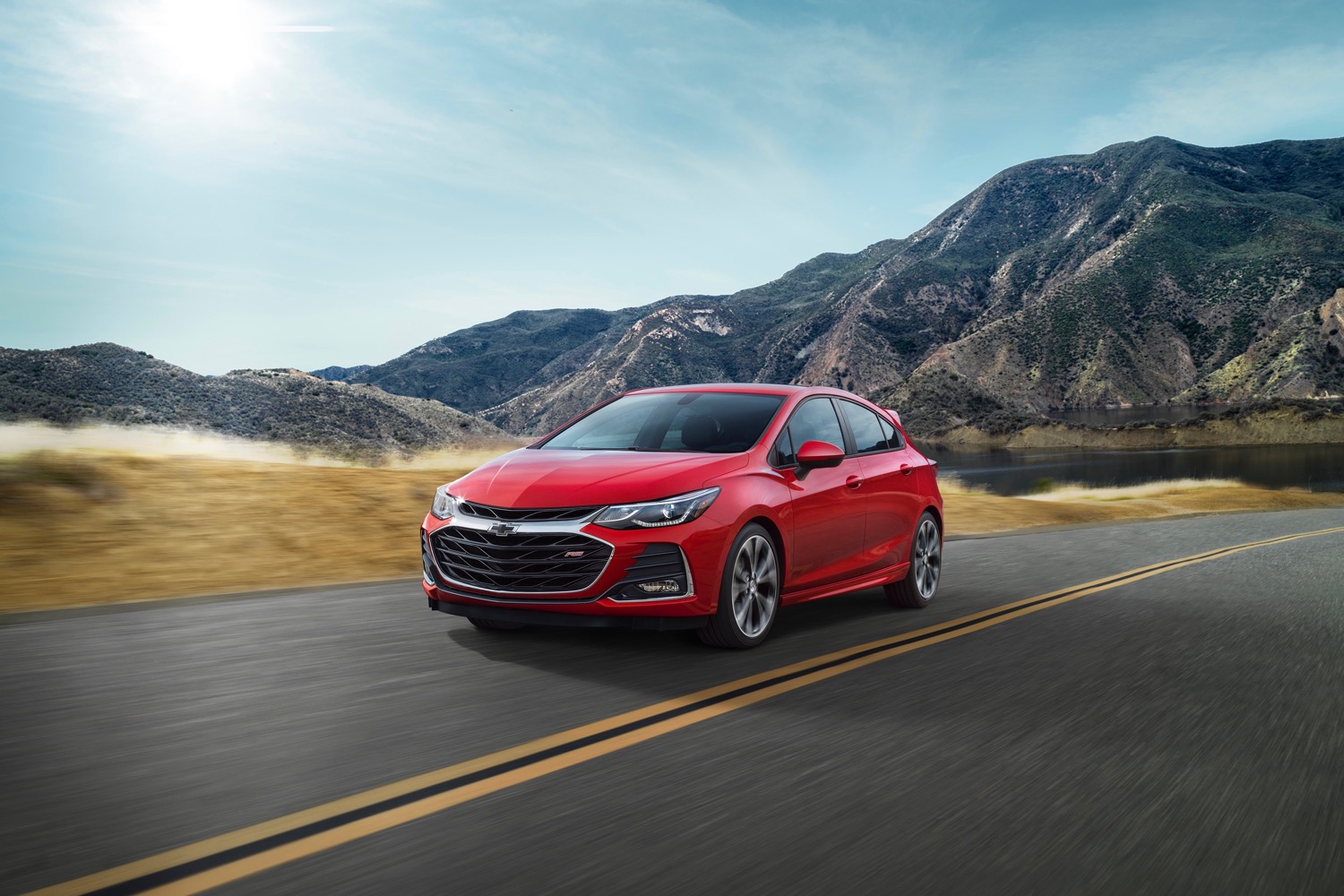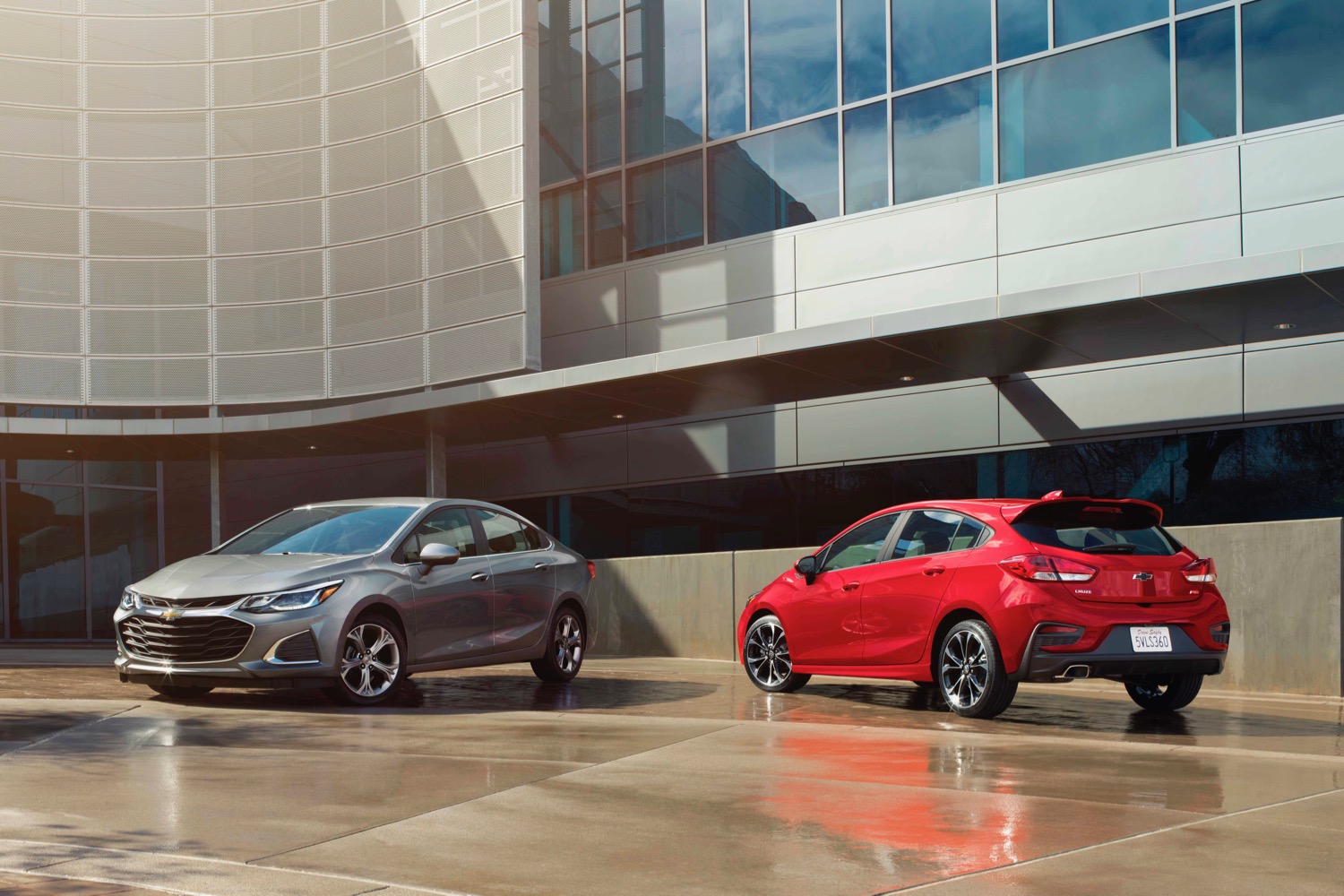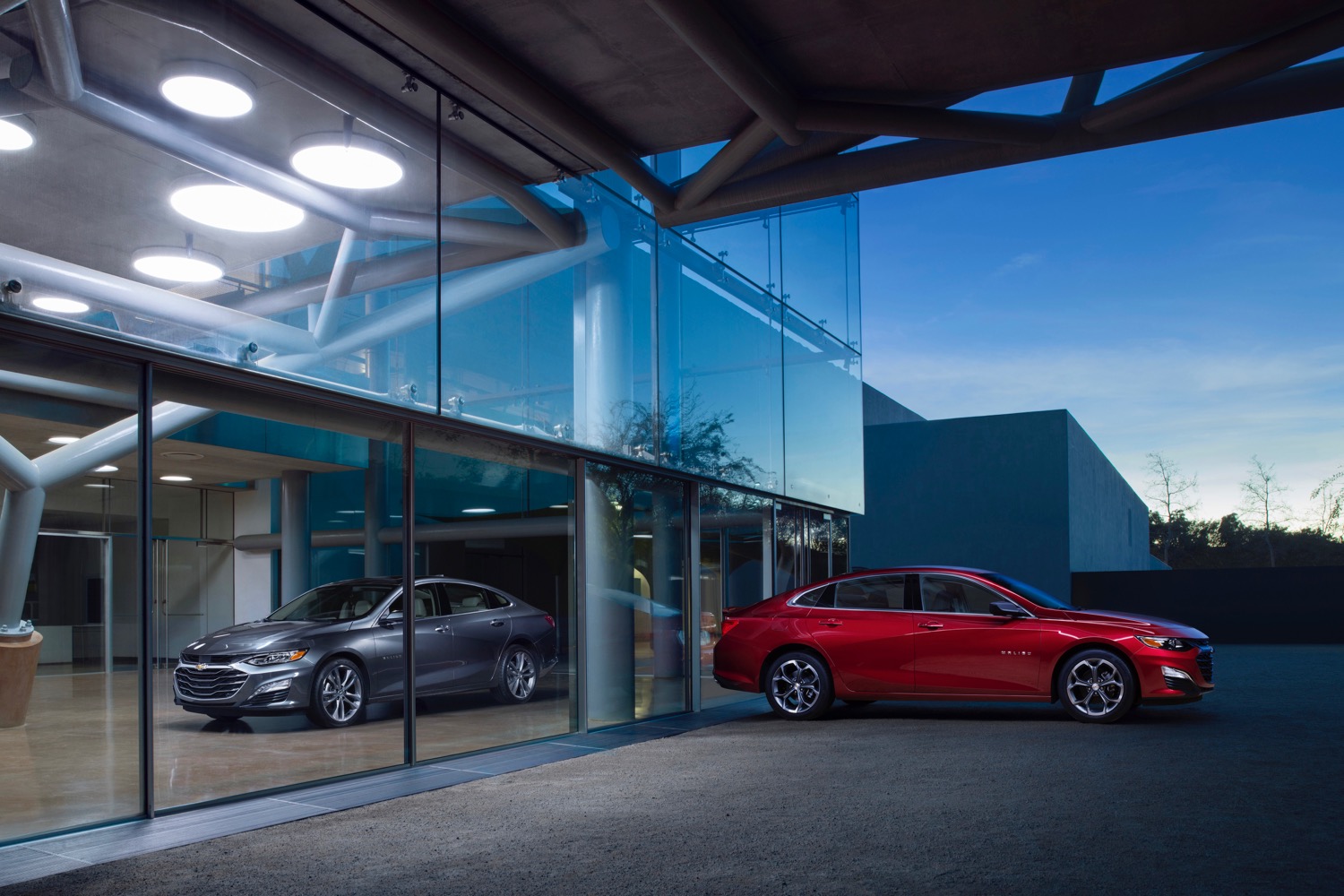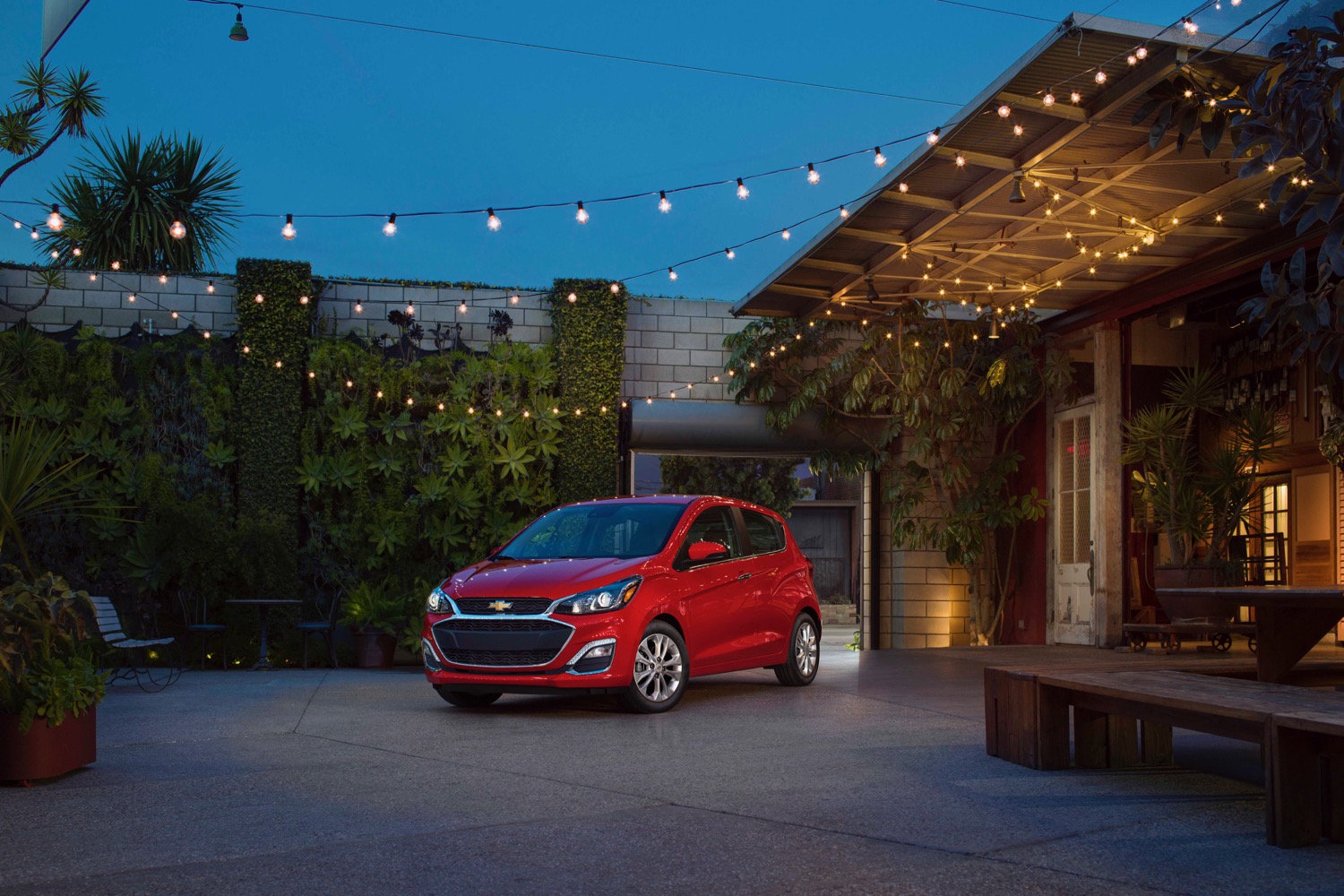As car buyers continue flocking to SUVs, sales of sedans and hatchbacks have begun to stagnate. To remind buyers that it sells something other than utility vehicles, Chevrolet is rolling out an assortment of minor tweaks and changes across its passenger-car lineup for the 2019 model year, headlined by new front-end styling. The updates are an attempt by Chevy to show that it still cares about cars.
“We are committed to offering consumers a full lineup of products with fresh designs, new technologies, and efficient powertrain options,” said Brian Sweeney, U.S. vice president of Chevrolet. “The investments we have made in Spark, Cruze, and Malibu will help position the brand for success in competitive segments that still make up a significant part of the total industry.”
What the automaker calls the “restyled face of Chevrolet cars” appears on the Malibu, Cruze, and Spark. There’s a hint of Camaro in the gaping grilles and taut lines, but it’s unclear whether the average customer will notice the differences. Another goal was to give the three models a more unified, familial appearance, and Chevy’s designers have at least accomplished that.
Each car also gets some individual changes for 2019. The Malibu adds an optional RS styling package, which includes blacked-out trim, a rear spoiler, 18-inch wheels, and dual-outlet exhaust on the outside, and a leather-wrapped steering wheel and shifter, black cloth seats, and standard 8.0-inch touchscreen on the inside. Malibu models equipped with the 1.5-liter turbocharged four-cylinder engine also get a new CVT transmission.
The 2019 Cruze gets a new infotainment system featuring a 7.0-inch touchscreen, as well as new interior color options. Remote start and automatic climate control are now standard on the LT and Premier trim levels, while the Cruze hatchback is available in lower-level LS trim for the first time. Changes for the Spark are limited to new exterior color options, what Chevy calls “revised interior trim,” and the availability of low-speed forward autonomous emergency braking.
Sedans and hatchbacks offer better handling and fuel economy than SUVs, and are often cheaper as well. But car buyers can’t seem to get enough of utility vehicles; restyled grilles and a smattering of extra options probably won’t change that. Chevy appears to be putting on a brave face, but it’s worth noting that the list of updates doesn’t include anything for the Sonic or Impala. While Chevy hasn’t confirmed anything, recent reports indicate the automaker may kill off those models.







